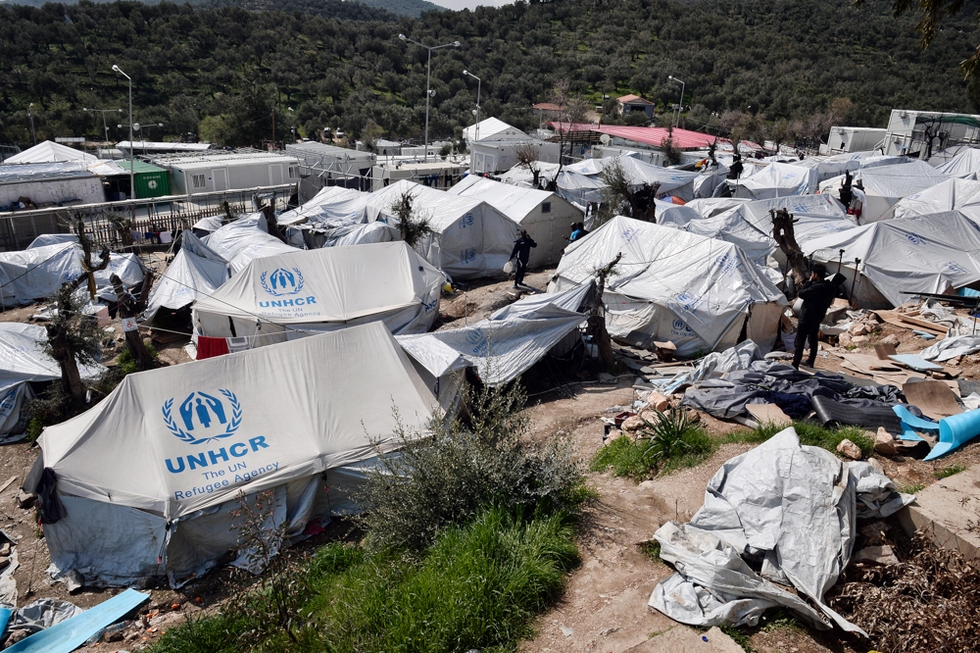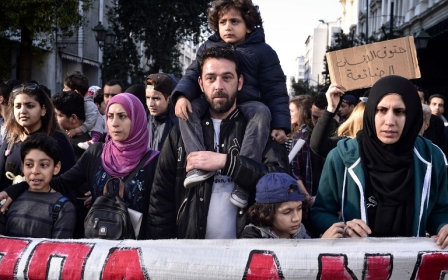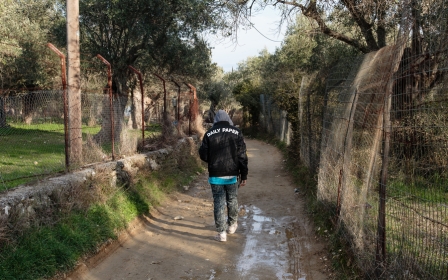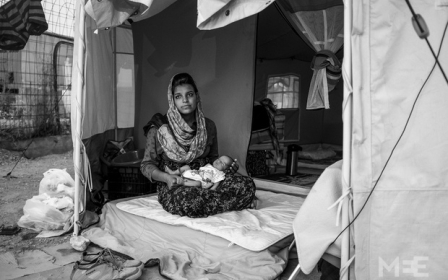Refugees face mental health crisis as Greece cuts medical aid

Refugees on Lesbos are facing a mental health catastrophe as Greece cuts funding in half during the high season for arrivals and prioritises their deportations back to Turkey, a medical charity has said.
Suicide, self-harm and sexual abuse is rife among the 4,700 people of Moria and Kara Tepe camps, Doctors Without Borders said, and mental health services have been cut despite the daily number of new arrivals growing fourfold in less than three months.
Vulnerable people are falling through the cracks
- Emilie Rouvroy, MSF head of mission
"Vulnerable people are falling through the cracks and are not been adequately identified and cared for," said the charity's head of mission, Emilie Rouvroy.
"The difficult, overcrowded living conditions, the complicated legal system, and asylum seekers' deep medical suffering are compounded by an often deep loss of home, family, friends and the violence of the journey many refugees have made," said advocacy manager Louise Roland-Gosselin, who analysed the project's data.
"The alarm bells are ringing now."
The NGO, also known as MSF, said in its report on Monday that almost 80 percent of refugees who sought mental health assessments on the island were deemed severe enough to be taken into care.
Half of the women who sought gynaecological consultations had been victims of sexual violence, it said. The absence of any female doctors also made identifying cases of sexual violence difficult, the report said.
But resources to detect vulnerable refugees were cut in half in April 2017, according to the organisation, just as new arrivals began to spike as weather became calmer for crossings from Turkey.
One of two clinics closed, and the number of psychologists per shift fell from three to one and nurses from four to one. Cultural mediators have also been withdrawn.
About 4,700 refugees currently live in the two refugee camps on the island as they await the outcome of their asylum claim from Greece's overburdened refugee services.
Among refugees assessed by the organisation between 1 January and mid-June, a third had symptoms of post-traumatic stress, a third had symptoms of depression, a third suffered from anxiety and four percent from psychotic disorders. The figures are not cumulative.
"It is common to see scars from cutting or cigarette burns on patients' arms and legs, and many share thoughts of wishing to drown themselves or fall from a tall building or cliff," they were quoted by the report as saying.
"These thoughts and behaviours appear to demonstrate the pervasive hopelessness people feel regarding their futures."
'Alarm bells are ringing'
Conditions at Moria have been consistently condemned by human rights groups and NGOs, particularly since March 2016 when refugees landing on the island were forbidden from leaving under the terms of an agreement between the EU and Turkey designed to stem the flow of refugees arriving by boat in Europe.
Arrivals of refugees on the Greek islands from Turkey have drastically reduced. An average of 1,100 refugees were arriving daily in Greece in March 2016 before the agreement came into force.
The current average daily number of arrivals has fallen to 73, but MSF has warned that the summer season has seen a fourfold increase, putting added strain on the island's overstretched facilities.
A total of 785 people arrived on Lesbos in the first three weeks of June, as compared to 230 people in April and 530 in May.
The camp has been the site of regular violent protests and rioting, as asylum procedure delays, overcrowding and poor conditions led to tensions between the camp's residents and authorities.
Clashes broke out twice last week with local media reports of tents being set alight by camp residents as frustration boiled over.
A Lesbos based refugee legal centre reported that 35 individuals were arrested because of the disturbances.
New MEE newsletter: Jerusalem Dispatch
Sign up to get the latest insights and analysis on Israel-Palestine, alongside Turkey Unpacked and other MEE newsletters
Middle East Eye delivers independent and unrivalled coverage and analysis of the Middle East, North Africa and beyond. To learn more about republishing this content and the associated fees, please fill out this form. More about MEE can be found here.




